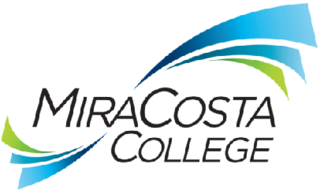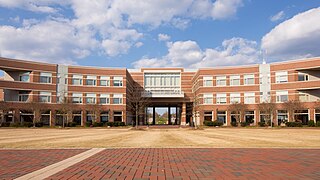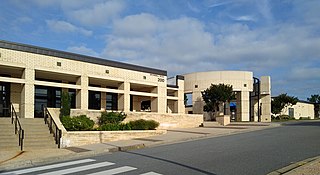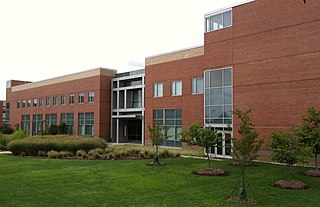Related Research Articles
FUJIFILM Diosynth Biotechnologies, abbreviated FDB and also referred to simply as Diosynth, is a biopharmaceutical contract manufacturing organization that develops manufacturing processes and manufactures active ingredients and provides fill and finish services for pharmaceutical companies. FUJIFILM Diosynth Biotechnologies is the world's second largest contract manufacturer of biopharmaceuticals, with manufacturing facilities in Morrisville, North Carolina and College Station, Texas in the United States, Teesside, United Kingdom and Hillerød, Denmark in Europe, and recently added sites in Thousand Oaks, California and Watertown, Massachusetts. FUJIFILM Diosynth Biotechnologies operates a highly automated multipurpose manufacturing facility in College Station, Texas under the federal government's Center for Innovation in Advanced Development and Manufacturing (CIADM) program, which is the largest scale-out cell culture manufacturing facility in the United States.

Wake Technical Community College is a public community college in Raleigh, North Carolina. Its first location, Southern Wake Campus, opened in 1963. Wake Tech now operates multiple campuses throughout Wake County. The largest community college in North Carolina, Wake Tech is part of the North Carolina Community College System and is accredited by the Southern Association of Colleges and Schools Commission on Colleges.
Pharming, a portmanteau of "farming" and "pharmaceutical", refers to the use of genetic engineering to insert genes that code for useful pharmaceuticals into host animals or plants that would otherwise not express those genes, thus creating a genetically modified organism (GMO). Pharming is also known as molecular farming, molecular pharming or biopharming.
A bioprocess is a specific process that uses complete living cells or their components to obtain desired products.

MiraCosta College is a public community college serving coastal North San Diego County in California with two campuses, one in eastern Oceanside and the other in Cardiff-by-the-Sea, and many satellite locations, including the Community Learning Center in western Oceanside.
Miranda Gek Sim Yap, also abbreviated as M.Yap or MGS Yap, was a professor in the Chemical and Biomolecular Engineering Department of the National University of Singapore, and the Executive Director of the Bioprocessing Technology Institute at the Agency for Science, Technology and Research of Singapore (A*STAR).

Centennial Campus is a research park and educational campus owned and operated by North Carolina State University in Raleigh, North Carolina, United States. Composed of two locations, the 1,334 acres (5.4 km2) property provides office and lab space for corporate, governmental and not-for-profit entities, in addition to providing space for 75 university research centers, institutes, laboratories and departmental units. Currently, 5,000,000 sq ft (460,000 m2) of constructed space has been built. Upon completion, Centennial Campus is anticipated to have 9,000,000 sq ft (840,000 m2) of constructed space.
Bioprocess engineering, also biochemical engineering, is a specialization of chemical engineering or biological engineering. It deals with the design and development of equipment and processes for the manufacturing of products such as agriculture, food, feed, pharmaceuticals, nutraceuticals, chemicals, and polymers and paper from biological materials & treatment of waste water. Bioprocess engineering is a conglomerate of mathematics, biology and industrial design, and consists of various spectrums like the design and study of bioreactors to the creation of kinetic models. It also deals with studying various biotechnological processes used in industries for large scale production of biological product for optimization of yield in the end product and the quality of end product. Bioprocess engineering may include the work of mechanical, electrical, and industrial engineers to apply principles of their disciplines to processes based on using living cells or sub component of such cells.
Merck Millipore was the brand used by Merck Group's global life science business until 2015 when the company re-branded. It was formed when Merck acquired the Millipore Corporation in 2010. Merck is a supplier to the life science industry. The Millipore Corporation was founded in 1954, and listed among the S&P 500 since the early 1990s, as an international biosciences company which makes micrometer pore-size filters and tests. In 2015, Merck acquired Sigma-Aldrich and merged it with Merck Millipore. In the United States and Canada, the life science business is now known as MilliporeSigma.

The Golden LEAF Foundation is a nonprofit corporation based in Rocky Mount, North Carolina in the United States, that was created in 1999 to receive half of the funds coming to North Carolina from the master settlement agreement with cigarette manufacturers. The foundation is now devoted to advancing the economic well being of North Carolinians and to transforming its economy. It works in partnership with local governments, educational institutions, economic development organizations and other public agencies, and nonprofits to achieve this goal.

Genedata is a Swiss-headquartered bioinformatics company that provides enterprise software that support large-scale, experimental processes in life science research. The company focuses on automating data-rich, highly complex data workflows in biopharmaceutical R&D. It continuously develops and markets interoperable software that together comprises the Genedata Biopharma Platform.
China has seen double-digit growth in its biotechnology industry and has gone from being one of the slowest to one of the fastest nations in the adoption of new biotechnologies. The biotech sector is seen in China and internationally as a core area of national scientific and economic development. The main national biotech body in the country is the China National Center for Biotechnology Development. The CNCBD is an organization established on November 3, 1983, under the Ministry of Science and Technology with the approval of the State Council. CNCBD is the sole national center to coordinate and implement the national S&T program in Biotechnology and Health.
Bioproducts or bio-based products are materials, chemicals and energy derived from renewable biological material.
North Carolina State University's College of Agriculture and Life Sciences (CALS) is the fourth largest college in the university and one of the largest colleges of its kind in the nation, with nearly 3,400 students pursuing associate, bachelor's, master's and doctoral degrees and 1,300 on-campus and 700 off-campus faculty and staff members.

Rowan–Cabarrus Community College (RCCC) is a public community college in Rowan County and Cabarrus County, North Carolina. It is part of the North Carolina Community College System.

The Golden LEAF Biomanufacturing Training and Education Center (BTEC) is a multidisciplinary instructional center at North Carolina State University that provides education and training to develop skilled professionals for the biomanufacturing industry. Biomanufacturing refers to the use of living organisms or other biological material to produce commercially viable products. Examples include therapeutic proteins, monoclonal antibodies, and vaccines for medical use; amino acids and enzymes for food manufacturing; and biofuels and biochemicals for industrial applications. BTEC provides hands-on education and training in bioprocessing concepts and biomanufacturing methods that comply with cGMP (current Good Manufacturing Practice), a set regulations published by the United States Food and Drug Administration (FDA).
Bioproduction is the production of biologics-based therapeutic drugs including protein-based therapeutics, vaccines, gene therapies as well as cell therapies; drugs so complex they can only be made in living systems or indeed are a living system. In practice, ‘bioproduction’ has become loosely synonymous with ‘bioprocessing’ as a way to describe the manufacturing process using, cell culture, chromatography, formulation and related analytical testing for large molecule drugs, vaccines and cellular therapies. Many combinations of reactor types and culture modes are now available for use in bioproduction: e.g., pharming, rocking wave-agitated bag batch, stirred-tank or air-lift fed-batch, and hollow-fiber or spin-filter perfusion. No single production format is inherently superior; that determination depends on many manufacturing capabilities, requirements, and goals. New cell lines, concerns about product quality and safety, emerging biosimilars, worldwide demand for vaccines, and cellular medicine drive new innovative solutions in bioproduction.
Bioproducts engineering or bioprocess engineering refers to engineering of bio-products from renewable bioresources. This pertains to the design and development of processes and technologies for the sustainable manufacture of bioproducts from renewable biological resources.
Biomanufacturing is a type of manufacturing or biotechnology that utilizes biological systems to produce commercially important biomaterials and biomolecules for use in medicines, food and beverage processing, and industrial applications. Biomanufacturing products are recovered from natural sources, such as blood, or from cultures of microbes, animal cells, or plant cells grown in specialized equipment. The cells used during the production may have been naturally occurring or derived using genetic engineering techniques.
Biotechnology in India is a sunrise sector within the Indian economy. Agencies of the Government of India concerned with the biotechnology industry include the Department of Biotechnology and the proposed Biotechnology Regulatory Authority of India. As of 2022, the sector is valued at $80 billion. Biotechnology in India is in a growth phase and the sector is expected to be valued at $150 billion by 2025 and surpass $300 billion in value by 2030.
References
- ↑ "Window on the Workplace" (PDF). ncbiotech.org.
- ↑ "2010 Batelle Report" (PDF). ncbiotech.org.
- ↑ "Economic Development". ncbioimpact.org.
- ↑ "Novartis Plans to Produce Vaccines by 2011". ncbiotech.org. Archived from the original on 2013-06-06. Retrieved 2013-04-03.
- ↑ "Merck Expansion Adds to Vaccine Core". ncbiotech.org.